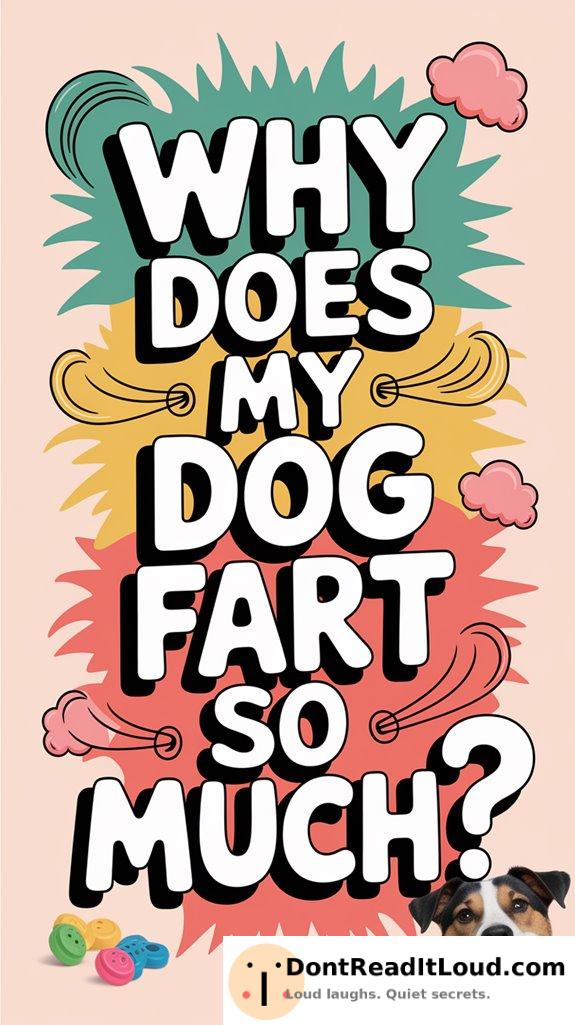
Your dog’s frequent farting can be caused by poor digestion, eating too quickly, or consuming low-quality food. Beans, peas, and dairy are hard for dogs to digest. Some breeds swallow more air, which leads to extra gas. Artificial additives, fillers, or food allergies may irritate their stomach. Being overweight or not getting enough exercise can make the issue worse. Health conditions affecting the digestive system might also contribute. Understanding these factors can help you reduce your dog’s gassiness.

Ever wondered why your dog seems to clear the room with their gas? You’re not alone. Understanding the reasons behind your dog’s flatulence can help you address this smelly issue. Various factors contribute to excessive gas in dogs, and it often ties back to their digestive health.
Poorly digested diets are a major cause of gas. If your dog’s food isn’t broken down properly, it ferments in the colon and produces gas. Foods like soybeans, peas, beans, and milk are difficult for dogs to digest and often lead to flatulence.
A sudden change in diet or eating spoiled food can upset their stomach. High-fiber foods, if not introduced gradually, may also increase gas. Feeding table scraps or fatty, sugary human foods can overwhelm your dog’s digestion, making gas worse.
Swallowing air, called aerophagia, is another reason. Dogs that eat too fast swallow more air, which later turns into gas. Feeding your dog right after exercise, while they’re still panting, can make this problem worse.
Certain breeds, especially those with flat faces, are more likely to gulp air because of their anatomy. Breathing problems or chewing on some toys can also cause dogs to swallow extra air.
Not all dog food is equal, and quality makes a difference. Foods with lots of artificial ingredients or fillers can upset your dog’s stomach. High levels of poorly digested protein cause foul-smelling gas, while foods like onions, nuts, and cruciferous vegetables lead to sulfurous odors. Brachycephalic breeds tend to have more gas due to their tendency to swallow more air, resulting from their facial anatomy.
Gastrointestinal issues, such as Inflammatory Bowel Disease or Small Intestinal Bacterial Overgrowth, can interfere with digestion and increase gas. Intestinal parasites, colitis, and pancreatitis—often linked to fatty diets—are other known causes. Normal part of digestion for dogs is farting, but excessive gas may require a vet assessment if it persists.
Food sensitivities or intolerances, like lactose intolerance, can upset your dog’s digestion. Allergies to certain ingredients may also cause undigested food to ferment, producing gas. Diagnostic tests may include fecal examination and culture to identify underlying causes.
Lifestyle matters too. Overweight or inactive dogs are more likely to have gas. Short-nosed breeds, fast eaters, and dogs who get little exercise often experience more flatulence.
Chronic digestive problems, bowel cancer, or Exocrine Pancreatic Insufficiency can also cause increased gas. Knowing these factors can help you make good choices for your dog’s diet and lifestyle, leading to better digestive health and less gas.
Conclusion
Your dog’s frequent farting is often caused by their diet, swallowing air, or certain food intolerances. Try changing what they eat and slow down their meals. If the problem continues, talk to your vet. While some gas is normal, too much could signal a health concern. By paying attention and making a few changes, you can help your dog feel more comfortable and reduce their gassiness.



